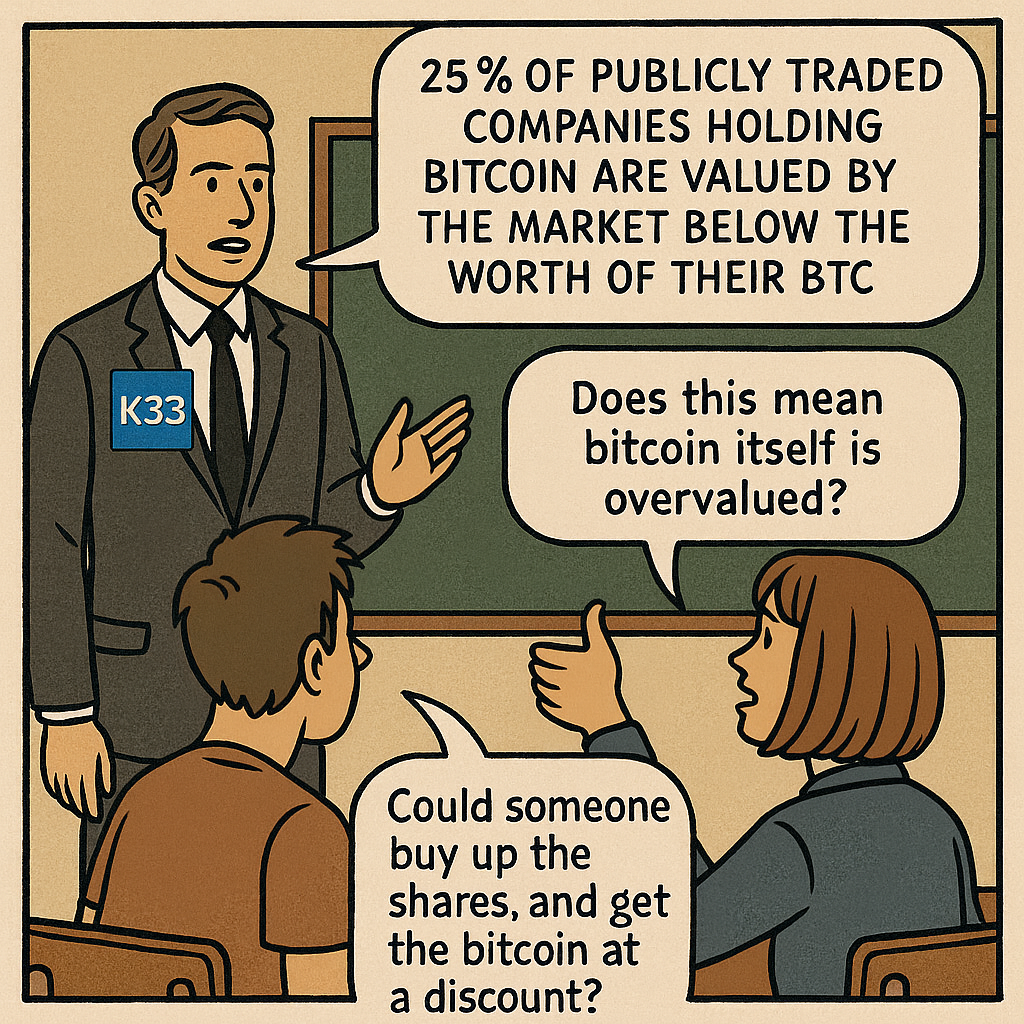
BTC Bags ≠ Moon Stocks
K33 Research reported that 25% of publicly traded companies holding bitcoin are currently valued by the market below the worth of their BTC holdings.
That raises two big questions.
First: normally, when companies trade below the value of their assets, the market is signaling that those assets are “bad” - illiquid or overvalued. In other words, investors don’t believe they can actually be realized at their stated balance sheet value.
So does this mean bitcoin itself is overvalued, and these investors see today’s price as too high?
Second: a stock is supposed to represent a share of a company, right? If all of a company’s shares together are worth less than the bitcoin it holds, then in theory someone could just buy up the shares, gain control of the company, and get the bitcoin at a discount. A perfect arbitrage play - or is it?
The catch is that by buying the company, you don’t just get its assets - you also inherit its liabilities. If a firm has $100M in bitcoin but also $100M in debt, what’s it really worth? Not necessarily zero, since it might still generate profits. But look closely at many of the “bitcoin treasury” companies: a lot of them have basically stopped doing business, just betting everything on BTC appreciation.
That’s why their market caps end up lower than the value of the bitcoin they hold. Why buy a slice of such a company when you can simply buy bitcoin yourself? When you hold BTC directly, you control it. When the company holds it, they control it.
At rabbit.io you can swap any crypto into bitcoin at the best available rates - no registration, no limits - and receive BTC straight to your own wallet, fully under your control.













